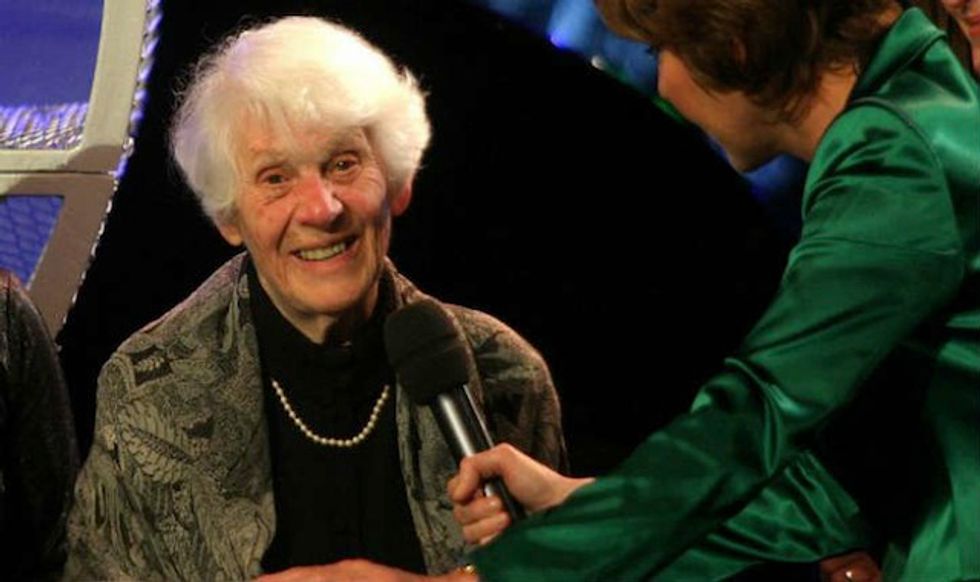
Ingeborg Rapoport, the 102-year-old PhD candidate. (Image source: Europe-Israel News)

A 102-year-old German woman finally passed her PhD exam 77 years after being barred from completing her studies due to the racist Nazi laws against Jews.
Physician Ingeborg Rapoport is believed to be the oldest person ever to earn her doctorate. Her achievement is all the more remarkable because the centenarian can no longer see well enough to read. Her friends and colleagues, with the help of Internet searches and phone calls, taught her the material she needed to know.
A Nazi injustice redeemed: Ingeborg Rapoport, 102, gets her doctorate https://t.co/pafulAOFl8 photo: Alexa Vachon pic.twitter.com/Ruk8shdAEN
— james graff (@lathram) May 14, 2015Rapoport, originally from Berlin, completed her doctoral thesis in 1938 at the age of 25 on the subject of diphtheria, the devastating bacterial infection which was then a leading cause of death in children.
But when it came time to taking her oral exam at the University of Hamburg in Germany, the last step in achieving a PhD diploma, she was refused because her mother was Jewish.
Under the Nazi racial laws, it didn’t matter that Rapoport was raised a Protestant.
So her exam forms were marked with a yellow stripe, denoting her Jewish family ties, and the university said she could not finish her final task for the degree.
“My medical existence was turned to rubble,” Rapoport told the Wall Street Journal. “It was a shame for science and a shame for Germany.”
While the university fell in line with the discriminatory Nazi policies, Rapoport’s professor, Rudolf Degkwitz, was imprisoned after protesting “euthanasia” killings at the children’s hospital, the Journal reported.
Under the Nazi program, the mentally ill and disabled were killed “thus ‘cleansing’ the ‘Aryan’ race of persons considered genetically defective and a financial burden to society,” the U.S. Holocaust Memorial Museum explains.
After her studies were blocked, Rapoport emigrated to the U.S. in 1938, the same year of the infamous Kristallnacht rampage against Jews and Jewish-owned stores in her city of Berlin.
She attended medical school in the U.S., became a pediatrician and eventually moved back to Germany.
When her son Tom first contacted the university to explore the possibility his mother could belatedly finish her studies, the family was told the challenge would be daunting, because her original paper was long gone, she hadn’t taken her oral exam, and that she had an American medical degree anyway. The Journal reported that they offered her an honorary diploma instead.
But one of the deans wasn’t satisfied with that answer, so eventually she was offered the opportunity to take her oral exams.
That meant boning up on more than 70 years of advances in diphtheria which were never part of her original paper.
Last Wednesday, Rapoport met with the dean and two professors to take her 45-minute oral finals, and passed.
"I've never been so happy," Rapoport told Germany’s Der Tagesspiegel.
“Frau Rapoport has gathered notable knowledge about what’s happened since then. Particularly given her age, she was brilliant,” Dean Uwe Koch-Gromus told the Journal.
“I have never felt bitterness,” Rapoport told the Journal. “I’ve been shockingly lucky in all this. For me it all came out well: I had my best teachers in the U.S., I found my husband, I had my children.”
The ceremony where she will be handed her diploma takes place June 9.